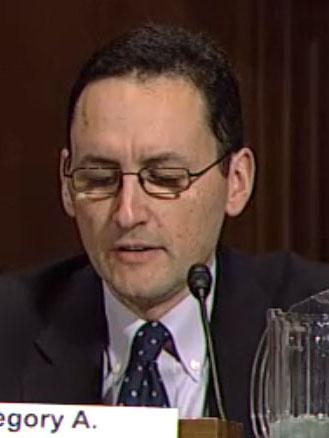PROVIDENCE, R.I. [Brown University] — Brown University environmental epidemiologist Gregory Wellenius told a U.S. Senate subcommittee today that proposed federal regulations to reduce ambient ozone levels could save lives.
“Lowering the primary ozone standard would have significant public health benefits including fewer deaths, fewer hospital admissions and emergency room visits for respiratory diseases, fewer respiratory symptoms, and improved lung function, especially among the most vulnerable members of the population,” Wellenius said in testimony to the Subcommittee on Clean Air and Nuclear Safety of the Senate Committee on Environment and Public Works. Wellenius is associate professor of epidemiology in the Brown University School of Public Health.
At issue is a proposal for the Environmental Protection Agency to tighten the primary standard for ozone from the current level of 75 parts per billion to a level in the range of 65-70 parts per billion. Wellenius said many major health organizations agree that doing so would improve human health significantly. “This conclusion is based on the findings from more than a thousand epidemiologic, clinical, and toxicologic studies carried out over decades and consistently demonstrating adverse effects of ozone exposure.”
Wellenius was invited to testify by U.S. Sen. Sheldon Whitehouse (D-R.I.), a member of the committee. His testimony is available at the online Senate archives.

